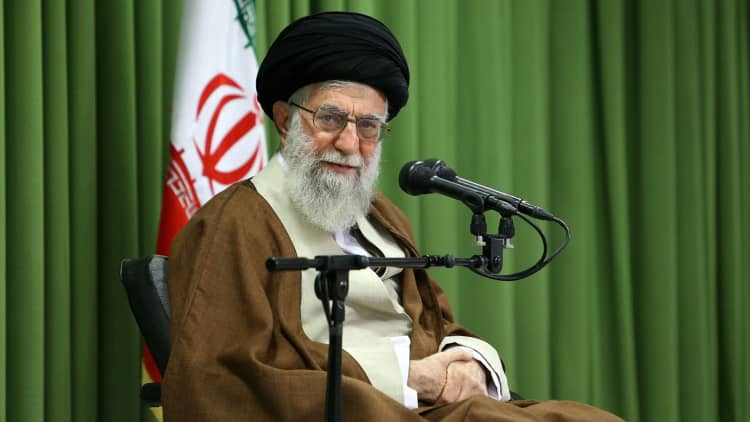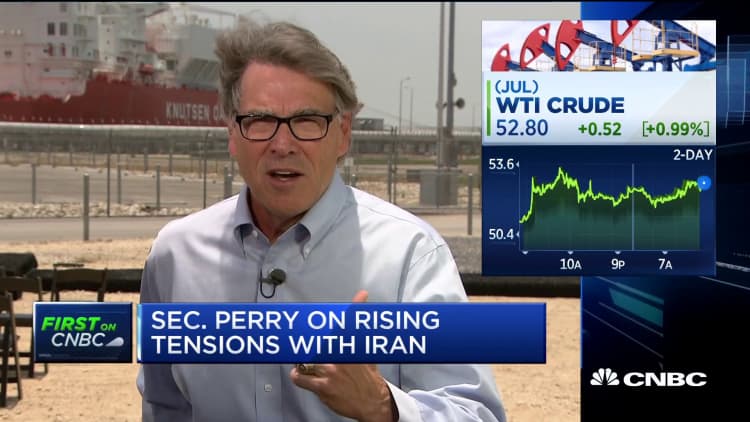
Iran has denied that it was responsible for the attacks on two oil tankers in the Middle East.
U.S. Secretary of State Mike Pompeo on Thursday blamed the Islamic Republic for the explosions on the oil tankers in the Gulf of Oman.
In response, Iranian Foreign Minister Mohammad Javad Zarif on Friday accused the U.S. of jumping "to make allegations against Iran—w/o a shred of factual or circumstantial evidence."
Two oil tankers — the Norwegian-owned Front Altair and the Japanese-owned Kokuka Courageous — suffered significant damage after experiencing explosions while they were traveling near the Strait of Hormuz, the world's busiest sea lane for oil shipments. Crews were forced to abandon ship and leave the vessels adrift in waters between Gulf Arab states and Iran.
It was not immediately clear who was responsible for the attacks, but the U.S. military released footage on Thursday which it said showed Iran's Revolutionary Guard Corps removing an unexploded mine from the side of one of the stricken tankers.
The attacks come as tensions between Washington and Tehran soared after the Trump administration withdrew from an international nuclear pact with Iran. Tehran has repeatedly threatened to block traffic in the Strait of Hormuz in retaliation for U.S. sanctions on the Islamic Republic.

Earlier, Iran's mission to the United Nations said in a statement: "Iran categorically rejects the U.S. unfounded claim with regard to 13 June oil tanker incidents and condemns it in the strongest possible terms."
On Twitter Friday, Zarif accused the U.S. of "sabotage diplomacy" adopted by the "B-Team." The so-called B-Team refers to a group including U.S. National Security Advisor John Bolton — an Iran hawk, Israeli Prime Minister Benjamin Netanyahu, and Saudi Crown Prince Mohammad Bin Salman.
Zarif had previously said the group could prod U.S. President Donald Trump into a conflict with Tehran.
But the U.S. Central Command reiterated on Thursday: "We have no interest in engaging in a new conflict in the Middle East. We will defend our interests, but a war with Iran is not in our strategic interest, nor in the best interest of the international community."
— CNBC's Amanda Macias, Natasha Turak, Tom DiChristopher and Reuters contributed to this report.


